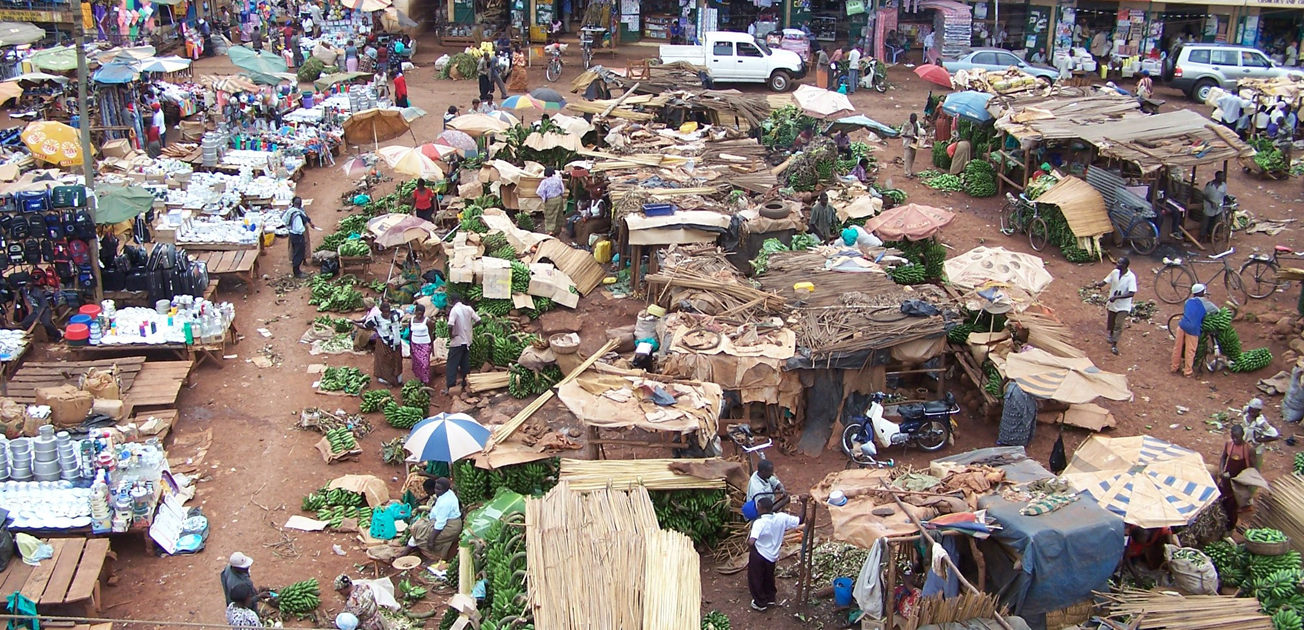
Customs and Cuisine of Christmas in Uganda
By Linda McElroy
Perhaps you are wondering if Christmas is celebrated in Africa? Although things a re a bit different in Uganda at Christmas time, it is certainly celebrated by those who are Christian and those who are culturally so but do not attend a church.
In Uganda, Christmas is called Sekukkulu, and it is celebrated on Dec. 25. The day starts with church services; even people who never go to church attend on this day (hmmm, this sounds familiar!). Everyone loves to get dressed up and show off their new finery. After church services everyone is eager to return home so the cooking and feasting can begin.
Everything stops for Sekukkulu. Hospitals start discharging patients to go home except for those who have serious conditions. Most government bureaucrats take their holiday break from almost the middle of December to the second week in January. All official business grinds to a halt. With the arrival of Sekukkulu, the prices of food and other goods become incredibly high and the crime rate also increases.
In Uganda, there is not so much the giving of presents, but the giving of presence. Most people do not have the financial resources to buy gifts such as toys. Instead, the emphasis is on sharing; food, family and new clothes. Children and parents will get a new set of clothes and sometimes shoes, often from the secondhand market, most likely clothing that was first worn by someone in the west. Gifts of food are ideal offerings from friends and relatives. Specialty items that are not available in Uganda such as cakes, biscuits, and soda are all enthusiastically received.
Chicken plays a central role in the Sekukkulu feasting. Starting in October families will identify chickens for the table and start coddling them to make sure that they are nice and fat for their feast. Families that can’t afford chicken at any other time will somehow find a way to purchase chickens for Sekukkulu. But if you are a goat you are equally in danger of finding your way to the Christmas table. Goats breed quickly, producing two kids a year, and give lots of milk and manure. For a festive occasion such as Christmas one may be slaughtered for a special meal.
The excitement builds throughout the day, as more and more food gifts arrive from family to supplement the meals already planned. One of the most important dishes prepared for Sekukkulu is “Luwombo.” Chicken is smoked, well seasoned and then wrapped in a smoked banana leaf and steamed together with matoke or green bananas. The steaming bananas give the chicken a scrumptious taste. In addition to the Luwombo, different types of meats are cooked as well. You might find goat, pork, and even roast beef in wealthy families, along with sweet potatoes, cassava, and rice. Everybody eats and drinks until they cannot eat any more.
After the feast it is time for storytelling, games, dancing, and singing while drinking soda and snacking on cakes. The celebrating goes on to the wee hours of the morning. Everything is closed on the day after Christmas.
In Uganda, just as all over the world, there is a celebratory spirit for family and friends to come together, eat, drink, and rejoice in the fact that they have each other.
- Christmas Traditions in East Africa
- Rural houses in East Africa get a bit squashed if relatives come round on Christmas Day – so lunch is often eaten outside.
- In Rwanda, people do not decorate Christmas trees, but everyone puts huge banana leaves on the house door to mark the festive season.
- Many Christmas presents are homemade toys, like plastic bag footballs, made from bags, banana stems and string.
- Relatives often travel long distances to be together and buy special clothes to wear on Christmas Day.
- Mango trees are decorated with colorful bells and candles for Christmas. Mangoes also make a tasty treat for Christmas Dinner.
Sources:
http://specialed.about.com/od/integration/a/christmasugandastory.htm
http://kabiza.com/Christmas-African-Style.htm
View Recipes from Uganda
Uganda
